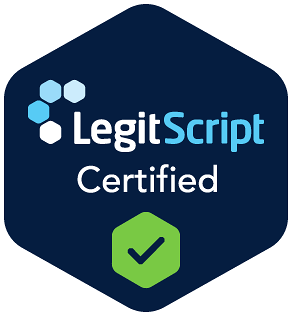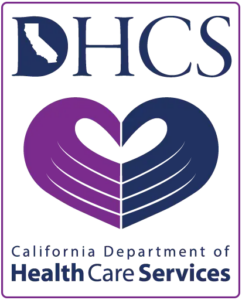Drug misuse and drug abuse are terms often used interchangeably, but they represent different behaviors with distinct intentions and consequences. Drug misuse occurs when someone uses a medication in a way that’s not consistent with medical guidelines, such as taking more than the prescribed dose or using someone else’s prescription. Drug abuse happens when substances are used deliberately to achieve a high, alter mood, or self-medicate.
Understanding the difference between these two behaviors is important for recognizing potential problems and seeking appropriate help. Both drug misuse and drug abuse can lead to negative health outcomes and require substance abuse programs to break the cycle of addiction.
According to the Substance Abuse and Mental Health Services Administration (SAMHSA), approximately 9.3 million people misused prescription pain relievers in 2020, while about 59.3 million people used illicit drugs. These statistics highlight why understanding the distinction matters.
What is the Difference Between Drug Misuse and Drug Abuse?
The main difference between drug misuse and drug abuse lies in intention and pattern of use. Drug misuse typically involves using a substance incorrectly but for its intended purpose. Drug abuse involves the deliberate use for non-medical purposes.
- Intent: Drug misuse often happens unintentionally or out of misunderstanding, such as taking extra pain medication because the prescribed dose isn’t working. Drug abuse involves intentionally using drugs to feel high or alter one’s mood.
- Pattern: Misuse might be occasional or situational, while abuse tends to be regular and repeated despite negative consequences.
- Motivation: People who misuse drugs are typically trying to treat a legitimate medical condition, while those who abuse drugs are seeking mood alteration or escape.
- Risk level: Both behaviors carry risks, but drug abuse generally presents a higher risk for addiction and harmful consequences.
The difference between drug misuse and abuse is important in medical settings because it helps determine appropriate treatment approaches. Someone misusing medication might benefit from education and monitoring, while someone abusing substances might need comprehensive addiction treatment.
Examples of Drug Misuse and Drug Abuse
Understanding the difference between these concepts becomes clearer with examples. Here are some common scenarios that illustrate drug misuse versus drug abuse in everyday situations.
Drug misuse often occurs when people take medication differently than prescribed:
- A person with chronic pain takes their pain medication more frequently than prescribed because they’re experiencing unusually high pain.
- Someone with insomnia doubles their sleeping pill dose after the first pill doesn’t seem to work.
In these cases, the person is using the medication for its intended purpose (treating pain or insomnia) but not following medical instructions. This misuse can lead to side effects, drug interactions, or the development of a tolerance.
Drug abuse occurs when medications or substances are used for non-medical purposes:
- A person takes prescription stimulants to stay awake for a party.
- Someone uses pain medications specifically to experience a euphoric “high.”
The key difference is that the drugs are being used intentionally to alter mood or consciousness, not to treat a medical condition. This behavior carries higher risks for addiction, overdose, and health complications.
When people share prescription medications, it can be either misuse or abuse, depending on the circumstances.
- A parent gives their child a dose of their prescription antibiotic for a similar infection (misuse).
- A student sells their ADHD medication to classmates who want to use it to study or get high (can be both misuse and abuse).
Sharing prescriptions is dangerous regardless of intent. Medications affect people differently based on their medical history, other medications they take, and individual factors.
How Can Drug Misuse Turn Into Addiction?
Drug misuse doesn’t always lead to addiction, but it can increase the risk. When someone repeatedly misuses drugs, their body may develop a tolerance and require larger doses to achieve the same effect. This can lead to physical dependence, where the body compensates for the drug and needs it to function normally.
Several factors influence whether misuse progresses to abuse or addiction:
- Genetic factors: A family history of addiction increases risk due to genetic predisposition.
- Mental health: Conditions like depression or anxiety can increase vulnerability to substance problems.
- Type of substance: Some drugs have higher addiction potential than others.
- Frequency of use: Regular misuse creates more opportunity for dependence to develop.
Signs that misuse may be becoming a more serious problem may include:
- Needing more of the drug to feel the same effects
- Experiencing withdrawal symptoms when stopping
- Spending significant time obtaining, using, or recovering from the drug
- Continuing use despite negative consequences
According to the National Institute on Drug Abuse, addiction is characterized by compulsive drug seeking and use despite harmful consequences. It’s considered a brain disorder because drugs change how the brain functions, and these changes can be long-lasting.
Common Consequences for Drug Misuse vs Drug Abuse
Both drug misuse and abuse can lead to negative outcomes, though the severity often differs.
Health consequences may include:
- Misuse: May include side effects, drug interactions, or worsening of the original condition being treated.
- Abuse: Often leads to more severe health problems, including organ damage, overdose risk, and the development of addiction.
Social consequences may include:
- Misuse: Might cause mild disruptions in relationships or responsibilities.
- Abuse: Frequently leads to significant relationship problems, job loss, and social isolation.
Legal consequences may include:
- Misuse: Could involve minor legal issues like possessing medication without a prescription.
- Abuse: Often results in more serious legal problems, including DUI, possession charges, or illegal activities to obtain drugs.
Financial consequences may include:
- Misuse: May lead to increased healthcare costs or medication expenses.
- Abuse: Often causes severe financial strain due to money spent on drugs, lost employment, and legal fees.
The substance abuse meaning extends beyond just using drugs. It encompasses a pattern of harmful use that affects multiple areas of a person’s life.
Substance Abuse and Misuse Treatment Options
Treatment approaches differ depending on whether someone is experiencing drug misuse or abuse. Both situations can benefit from professional guidance.
Behavioral therapies help people change unhealthy patterns related to substance use:
- Cognitive behavioral therapy (CBT) helps identify and change thoughts and behaviors related to substance use.
- Motivational interviewing helps build motivation to change substance use patterns.
- Contingency management provides rewards for positive behaviors, like staying drug-free.
Treatment therapies can be effective for both misuse and abuse, but the intensity and focus may differ. For misuse, therapy might focus on education and developing proper medication management skills. For abuse, therapy often addresses underlying issues and develops coping strategies.
For certain substances, especially opioids and alcohol, certain medications can help manage withdrawal and reduce cravings.
- Methadone and buprenorphine help manage opioid dependence
- Naltrexone blocks the effects of opioids and alcohol
- Acamprosate helps reduce alcohol cravings
Medication is typically more necessary for treating drug abuse than misuse, especially when physical dependence has developed. These medications work best when combined with counseling and behavioral therapies.
Many people who struggle with substance use also have mental health conditions like depression, anxiety, or PTSD. These are called co-occurring disorders, and the state of having a mental condition in addition to addiction is referred to as having a dual diagnosis.
Effective treatment addresses both substance use and mental health issues simultaneously. This might include:
- Integrated treatment from providers who understand both conditions
- Medications for mental health symptoms
- Therapy that addresses how mental health and substance use affect each other

Drug Misuse and Drug Abuse FAQs
No, not all drug misuse progresses to abuse. While misuse increases the risk of developing problematic use patterns, many people who occasionally misuse medications never develop abuse or addiction. Early intervention and education can help prevent escalation.
Using a prescription medication in any way other than prescribed, including taking higher doses, taking it more frequently, or using it for different purposes, is considered misuse. Even with a legitimate prescription, not following directions can lead to harmful effects.
Approaching the conversation with compassion rather than judgment is important. Express specific concerns about behaviors you’ve observed, offer to help them speak with a healthcare provider, and consider consulting addiction specialists who can guide effective approaches.
Start Your Recovery Today at Surf City Detox
Recovery from substance misuse or abuse begins with understanding the problem and seeking appropriate help. Professional treatment, including detox and rehab, can provide the structure, support, and expertise needed to address substance use issues effectively.
At Surf City Detox in Huntington Beach, California, treatment plans are tailored to each person’s specific situation. Whether someone is experiencing drug misuse or a more severe substance use disorder, recovery is possible with the right support.
If you or someone you care about is struggling with substance use, reaching out for help is a sign of strength. Recovery is a journey, and having professional guidance can make that journey more successful. The goal is not just to stop substance use but to build a healthier, more fulfilling life. Contact us to learn more.
https://nida.nih.gov/publications/drugfacts/understanding-drug-use-addiction
https://nida.nih.gov/nidamed-medical-health-professionals/health-professions-education/words-matter-terms-to-use-avoid-when-talking-about-addiction
https://www.samhsa.gov/data/sites/default/files/reports/rpt35325/NSDUHFFRPDFWHTMLFiles2020/2020NSDUHFFR102121.htm
Dr. Eric Chaghouri is a 2007 graduate from the University of California, Los Angeles, where he earned his B. A. in Biology with Summa Cum Laude honors. While at UCLA, he helped the men’s varsity volleyball team earn a National Championship in 2006. He was named the UCLA Scholar-Athlete of the Year in 2007.
He earned his medical degree from the Keck School of Medicine in 2011. He completed his internship training in 2008 at Cedars-Sinai Medical Center and the remaining three years of residency in general adult psychiatry at the Los Angeles County and University of Southern California Medical Center. He served as the Chief Resident in psychiatric emergency services during his fourth year of residency. He also served as Resident Clinical Instructor and Volunteer Faculty in the Department of Psychiatry at the Keck School of Medicine.
After completing residency, Dr. Chaghouri accepted a fellowship position in forensic psychiatry at the prestigious USC Institute of Psychiatry and Law. His scholarly activities included publishing in Legal Digest and presenting research findings at the Keck School of Medicine annual conference.
Since completing his forensic psychiatry fellowship, he has established a successful and thriving practice in Southern California, focusing on treatment of co-occurring psychiatric and addictive disorders. He has developed a strong clinical team of practitioners who share similar goals and philosophies regarding psychiatric treatment, including providing cutting-edge interventional treatments for psychiatric conditions. He works in an array of capacities with attorneys, courts, and other parties in actual or potential litigation. He also has extensive experience consulting and providing opinions on psychiatric issues for major television networks. Dr. Chaghouri’s interests include addiction medicine, substance use disorders, forensic psychiatry, medical ethics, psychological autopsy, gender wellness, and evidence-based treatment of psychiatric conditions.



